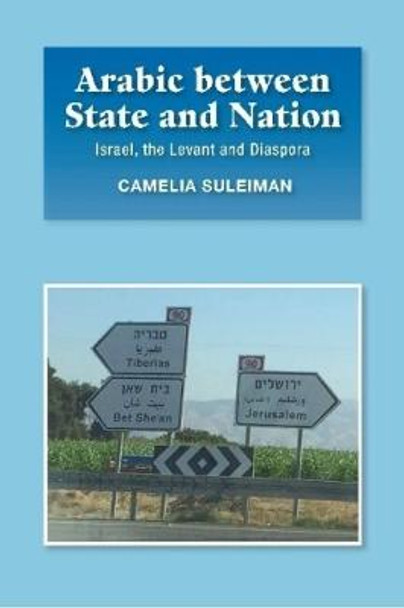Description
About the Author
Camelia Suleiman is an associate professor at the Department of Linguistics, Languages and Cultures at Michigan State University. She earned her Ph.D. in (Socio)Linguistics from Georgetown University. Her books include The Politics of Arabic in Israel: A Sociolinguistic Analysis (2017) and Language and Identity in the Israel-Palestine Conflict: The Politics of Self-Perception in the Middle East (2011). Her numerous articles have appeared in many journals, including The Middle East Journal of Culture and Communication.
Reviews
Building on long term and wide-ranging ethnographic explorations of language and politics in the Middle East, Professor Camelia Suleiman incorporates situated understanding of people and place, cross-disciplinary scholarship, and insightful theoretical links to account for the use and role of Arabic in the Jewish state, with a comparison to the diaspora in the US a key feature. It is an important, revealing, thought-provoking book, which illuminates facets of a complex history of language, politics, and identity.
Colleen Cotter, Professor in Media Linguistics, Queen Mary University of London
Camelia Suleiman's Arabic between State and Nation is a vitally important and many-sided study on the position and development of Arabic in Israel, the Palestinian territories, Jordan, Lebanon, and Syria. It even discusses Arabs and Arabic in Michigan, with the highest concentration of Arabs in the US. Through language, it tackles a myriad important questions such as identity, position of minorities in a settler-colonial state, and the role of education systems. This diligently researched book is an essential reading for anybody wishing to learn what has happened to Levantine Arabic, once common to the whole region but now separated by modern borders and competing nation-building projects.
Hannu Juusola, Professor of Middle Eastern Studies, University of Helsinki, Finland
The author discusses the role of language in various Arab contexts and leads the reader to the special situation of the language development in Jerusalem. I found the book interesting, well organized, and comprehensive. In my opinion, this book should be part of linguistics studies, as well as Middle East Studies.
Mona Khoury-Kassabri, Vice President of Strategy and Diversity, Professor of Social Work, Hebrew University of Jerusalem
It is a fascinating, comprehensive and enlightening research work on the interplay between the Arabic language and the social and political developments in the Levant states, notably Jordan, Israel, the West Bank and East Jerusalem. Based on a variety of sources, personal observations and interviews, this original study uniquely contributes to our knowledge and understanding of the crucial role of Arabic on the national identities of important Middle Eastern entities.
Moshe Ma'oz, Professor Emeritus, Islamic and Middle Eastern Studies, Hebrew University of Jerusalem
Book Information
ISBN 9781789761696
Author Camelia Suleiman
Format Paperback
Page Count 240
Imprint Liverpool University Press
Publisher Liverpool University Press





